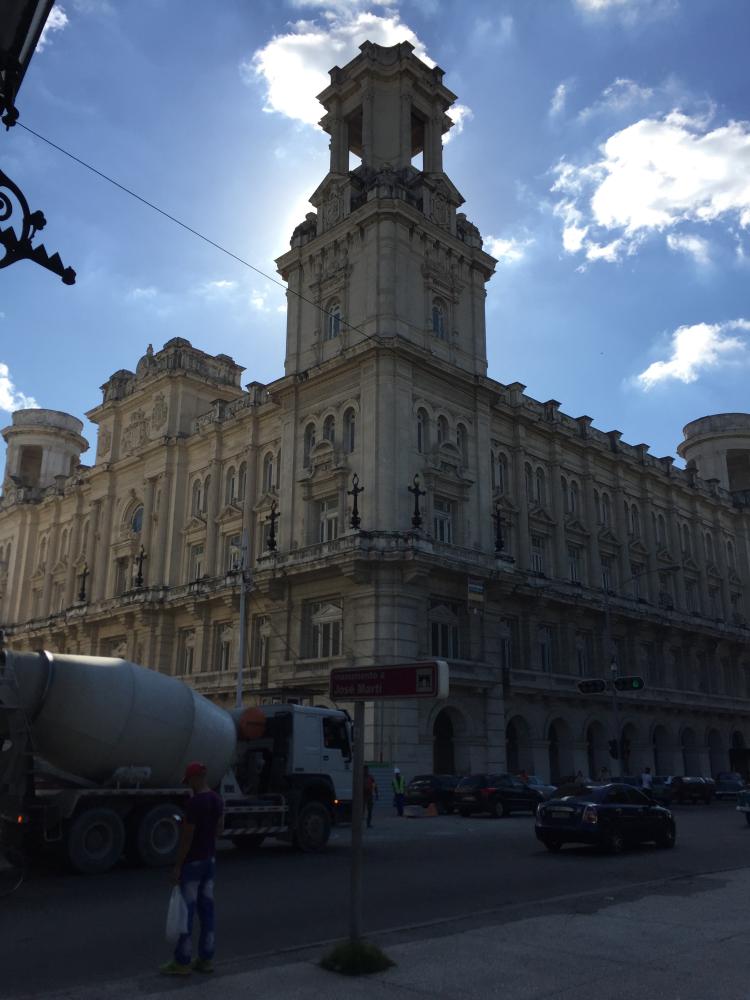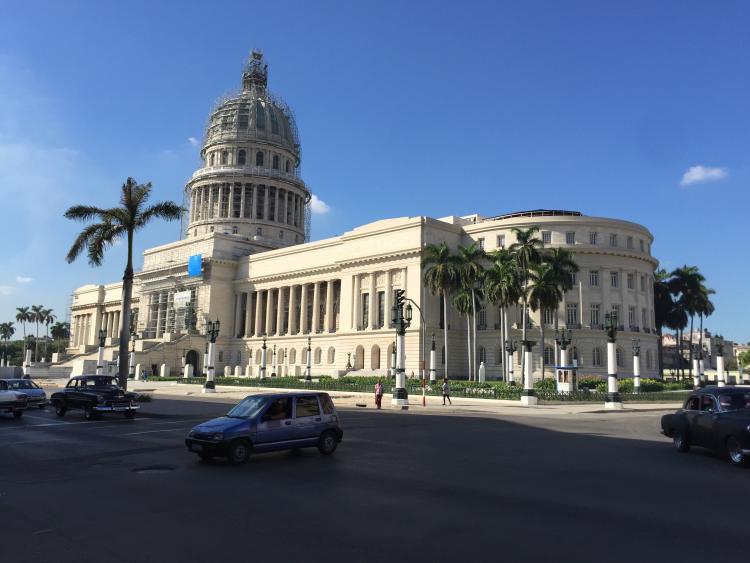The music of hope

While many looked forward with uncertainty as the year drew to a close, Wetherbee had been instilled with a new hope by a recent musical trip to Cuba.
“It was fantastic. It made me hopeful that things will continue to normalize between our countries.”
Wetherbee, assistant professor of violin at the College of Music, was at the Havana Conservatory coaching and teaching as part of the Havana Mozart Festival. As part of a partnership with the Salzburg Mozarteum Foundation out of Austria, the nine-day event aims to bring cultures together to celebrate the lauded composer. It centers around the historic Lyceum Mozartiano concert hall in Havana, which was renovated several years ago by the foundation.
Wetherbee hopes the recent mending of ties between the United States and Cuba will bring the nearby neighbor back into the worldwide musical discussion.
“Cuba used to have one of the world-renowned classical traditions. The Havana Symphony was one of the world’s great orchestras and since it’s been cut off, those musicians have lost the opportunity to have much interaction.”
Conversely, he says his time in Cuba revealed the power of music to cross cultures and mend long-held rifts between nations.
“Even though I don’t speak Spanish, I was able to communicate with the students by playing and demonstrating,” Wetherbee says. “We had a bond immediately because of our love of music. Music is always able to break down these political and other human barriers because it’s a language everyone speaks.”
No stranger to intercultural collaboration, Wetherbee and his quartet Carpe Diem will also mark 2017 with a new recording of works by Iranian composer Reza Vali.

The quartet has been immersed in Vali’s work for years and recently released a two-disc set of his works on the Naxos label. This weekend at Carnegie Hall, Carpe Diem will premiere a work Vali wrote for them. Also on the program is the premiere of “Seize the Sun: Fantasy on Icarus,” a piece by fellow College of Music faculty member Jeffrey Nytch.
“It’s a beautiful piece and we’ve enjoyed learning it,” Wetherbee says. “I always enjoy working with my CU colleagues, and it’s exciting to show the world the high-caliber composers we have in Boulder.”
Looking ahead, Wetherbee also takes the reins of the College of Music’s chamber music and art study abroad program in Florence, Italy, this summer. And he’s hoping his trip to Cuba leads to an eventual partnership with the Havana Conservatory.
“I think there is a possibility of exchange between our countries. For students studying world music or ethnomusicology, this would be a fantastic chance to be immersed in Cuban music. And the students in Havana were bright, talented, curious and open.”
For more on the Havana Mozart Festival, visit the Salzburg Mozarteum Foundation’s website.


